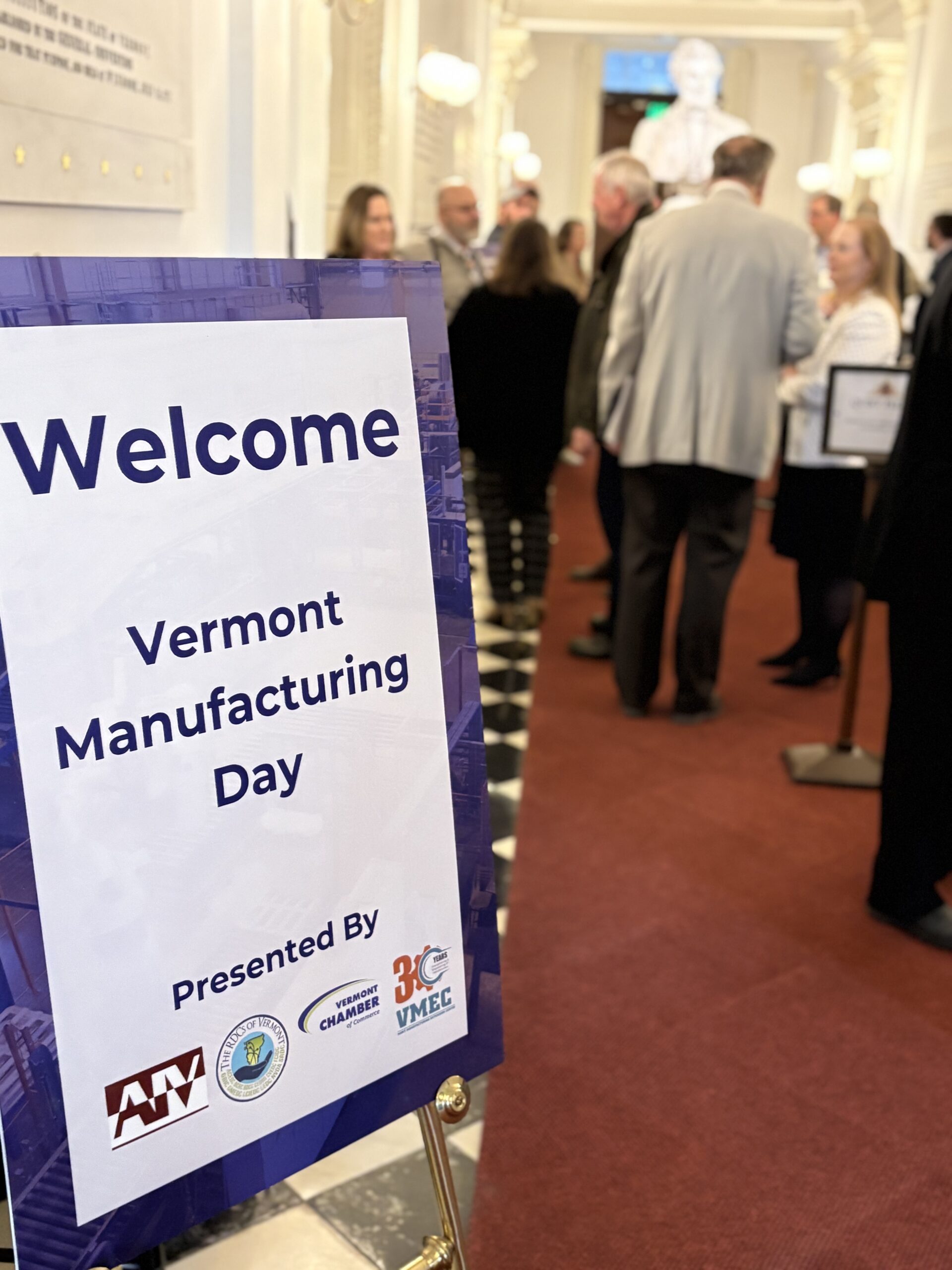Legislature Invests in Economic Future but Provides Little Immediate Support to Recovering Businesses
By Betsy Bishop, President of the Vermont Chamber of Commerce, and Charles Martin, Government Affairs Director of the Vermont Chamber of Commerce
At the start of the pandemic last year, it became clear that along with significant challenges posed, there were new opportunities to reevaluate Vermont’s needs and invest in our future. The Vermont Chamber identified specific critical needs for working Vermonters in child care, broadband, and housing. During the past legislative session, we saw substantial investment in these areas through a child care bill, $150 million allocated for broadband expansion, and $190 million allocated for housing.
However, when it came to providing immediate support to recovering businesses, the Legislature failed to help in a meaningful way. Only $30 million in relief grant money was allocated for Vermont businesses. That is not nearly enough. In December, the Agency of Commerce and Community Development estimated the known unmet need of employers to be $500 million. The Legislature also advanced a $100 million tax on employers to fund increased unemployment insurance benefits. This new tax runs counter to the efforts of businesses working to recover from the pandemic and rehire staff.
Legislators deserve credit for supporting several Vermont Chamber priorities that made it over the finish line and will help businesses recover from the pandemic:
- Taxing PPP loans prevented
At the insistence of the Vermont Chamber, the Legislature agreed to exclude 2021 Paycheck Protection Program (PPP) recipients from tax liability. The Vermont Chamber and other business organizations tirelessly advocated to prevent the Legislature from taxing 2021 PPP loans. Businesses that were impacted by the pandemic and accessed PPP will now avoid a significant tax bill.
- Unemployment insurance rate increase reduced
We pushed the Legislature to prevent significant unemployment insurance (UI) contribution rate increases for employers forced to furlough employees because of Covid-19. We also helped secure changes to remove 2020, an anomaly year, from consideration when the Department of Labor computes unemployment insurance tax rate schedules. UI tax rates increase when employers lay off workers, penalizing them for that action. However, the pandemic layoffs were due to government restrictions, forcing this recalibration of the formula.
- New Montreal office will strengthen Vermont’s ties with Canada
A new Business Attraction Investment Program will generate foreign direct investment (FDI) prospects for Vermont in aerospace, biotechnology, and renewable energy and provide Vermont with statewide representation in Québec. The initiative will increase FDI with Canada and promote cross-border trade and tourism when the border reopens. We helped secure funding for this initiative to strengthen our ties with Québec, promote tourism as we emerge from the pandemic, and attract Canadian companies interested in establishing a footprint in Vermont for contracting opportunities.
- Incentives to attract remote workers will continue
Legislation was codified and funded with $650,000 to continue the remote worker and worker relocation programs that were successful prior to pandemic. Qualifying new employees may receive up to $7,500 in relocation expense reimbursement if they become a resident of certain areas in Vermont. The Vermont Chamber recognizes the value of attracting new families to live and work in Vermont and fully supported these programs to improve and expand our statewide workforce.
- Massive health care savings passed for small businesses
Legislation passed that takes advantage of a change in federal health care policy and will result in millions of savings in health care costs for small businesses. Estimates suggest this could result in as much as $17 million in savings. The action is the result of the Legislature and Administration responding quickly to a federal change and the Vermont Chamber’s advocacy, which urged them to act to take advantage of these savings in the next health plan year.
- Alcohol to-go will continue
Current pandemic-allowed alcohol to-go provisions will remain in place until July 2023 for licensees. This extension was a legislative priority identified by the Vermont Chamber and our partner organization, Vermont Independent Restaurants.
- Harmful cloud tax prevented
We helped businesses avoid a harmful cloud tax. The tax would have cost Vermont’s technology industry at least $14 million annually by Fiscal Year 2025 and would have damaged the state’s current tech-friendly reputation, while also disincentivizing the recruitment of remote workers. This tax proposal had the potential to negate much of the economic benefit that will be achieved through State investments in broadband infrastructure.
- Millions in tourism marketing money secured
We also helped secure a $1.4 million boost for tourism marketing promotion and $600,000 for a regional stimulus program within the Department of Tourism and Marketing. The tourism promotion funds will be used to promote Vermont’s travel, recreation, culinary, arts, culture, agritourism, and heritage experiences to attract visitors and stimulate visitor spending with local attractions and businesses throughout the state.
While we celebrate these advocacy wins and historic investments in Vermont’s child care, broadband, and housing infrastructure, it is unacceptable that legislators did not advance substantial immediate relief for our state’s businesses. When legislators return for the next session, there is still money on the table: $514 million of Vermont’s American Rescue Plan Act of 2021 funds have not been appropriated. Significant funding should go directly to helping Vermont’s businesses, which are operating at severe losses and still struggling because of the pandemic. The year ahead holds continued challenges, and it is our shared responsibility to ensure our state’s business community recovers and our economic future is bright.
SHARE THIS ARTICLE
RECENT NEWS



